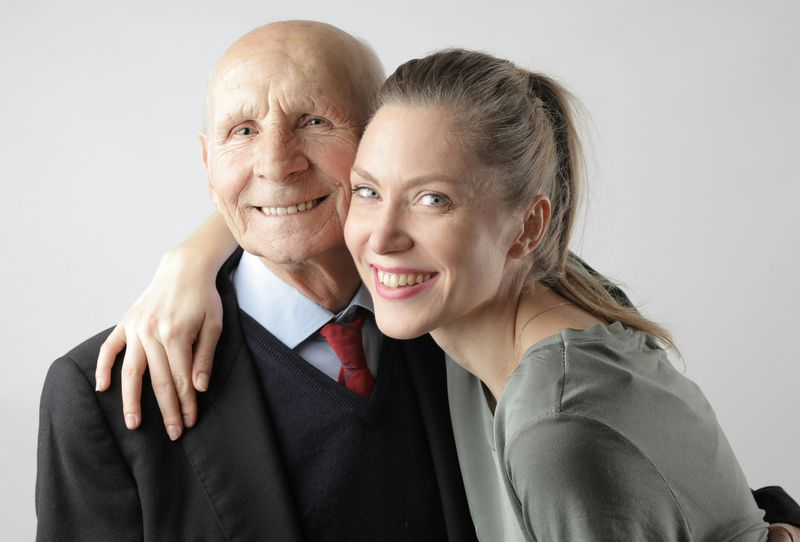12 Polite Things Adults Say to Hide Resentment Toward Their Parents

Family relationships can be complicated, especially as we grow older and navigate the shifting dynamics with our parents. Many adults find themselves caught between honesty and politeness when dealing with lingering resentment or unresolved issues. Instead of expressing true feelings, we often rely on carefully crafted phrases that maintain peace while creating emotional distance. These seemingly innocent expressions serve as shields, allowing us to protect ourselves without causing direct conflict.
1. “I’ll let you know.”

When an adult says “I’ll let you know,” it often serves as a polite buffer between them and a request they have no intention of fulfilling. Instead of rejecting their parent outright, which could feel too harsh or confrontational, they choose this phrase to create space. It allows them to maintain the appearance of openness while quietly exercising control over the decision. Parents may interpret it as a genuine maybe, but the adult usually already knows the answer is no. This phrase works as a protective shield, offering an escape hatch from obligations that feel draining. It subtly communicates that the child values autonomy without stirring conflict. The adult gets to avoid an argument, and the parent feels temporarily appeased. It’s a way of sidestepping guilt while buying time. Ultimately, it reflects the complex balance between courtesy and hidden frustration.
2. “That’s interesting.”

Rather than diving headfirst into arguments, many adults lean on “That’s interesting” as their conversational escape hatch. The phrase functions as a verbal nod, acknowledging what was said without offering agreement. Parents may believe they’ve sparked curiosity, but often the adult is masking irritation or disapproval. It’s a safe placeholder that allows the conversation to move forward without sparking tension. Beneath the politeness lies the relief of sidestepping yet another heated debate. This subtle tactic prevents energy from being wasted on battles that never lead to resolution. By sounding neutral, the adult keeps the peace while quietly disagreeing. Over time, though, these small evasions accumulate into a pattern of emotional self-protection. It’s not dishonesty—it’s survival within a difficult family rhythm.
3. “I’ve just been really busy.”

On its surface, it communicates hustle, obligations, and the universal pressure of modern life. But more often than not, it’s less about work and more about weariness in the relationship. By invoking busyness, the adult avoids the uncomfortable truth that they may simply not want contact. It spares the parent from feeling directly rejected, cloaking distance in respectability. This phrasing works so well because no one can reasonably argue with it. At the same time, it gives the adult breathing space without open conflict. Hidden inside those words is a desire for independence and emotional rest. In the end, “busy” is less a description of a calendar and more a quiet boundary drawn in code.
4. “Maybe another time.”

The beauty of this phrase is that it keeps the possibility alive while quietly closing the door for now. Parents often interpret it as hopeful, but the adult usually knows they have no intention of following through. It’s a way of softening rejection while keeping peace intact. The phrase also places control back in the adult’s hands, signaling that timing and choice belong to them. What makes it effective is its ambiguity: it doesn’t invite pushback. By using it, the adult avoids outright confrontation, which can be exhausting in strained relationships. At the same time, it buys them space without guilt. Underneath the courtesy lies a firm boundary, disguised in kindness.
5. “I appreciate your advice.”

There’s a subtle genius in responding to unsolicited parental advice with “I appreciate your advice.” On the surface, it conveys gratitude and respect, which parents often crave. But in practice, it’s more about closing the conversation than opening it. Adults say it to acknowledge the effort without committing to any action. It is a phrase that protects autonomy while still sounding courteous. Instead of debating, the adult offers appreciation as a buffer. The words rarely mean they intend to follow the suggestion. Instead, they are a graceful way of saying “thank you, but no.” This polite deflection maintains dignity for both sides, while the adult quietly safeguards independence.
6. “We’ll see.”

It sits in the delicate space between yes and no, giving parents the illusion of possibility without real intent. For adults, it serves as a strategic way to delay pressure. The beauty of the phrase is that it cannot be argued with—it neither accepts nor rejects. Parents may hear optimism, but the adult knows it’s usually a polite refusal. It is a gentle way of keeping control without sounding rebellious. By leaving the outcome vague, the adult buys freedom while dodging guilt. This phrase works particularly well in families where direct confrontation feels unsafe. It is, in essence, a carefully wrapped “no” dressed in diplomacy.
7. “That’s just how you are.”

Sometimes adults soften judgment with the deceptively kind phrase, “That’s just how you are.” It appears accepting, but beneath the surface, it often carries resignation. The words suggest tolerance, while actually signaling quiet disapproval or weariness. Rather than challenge a parent’s behavior, the adult uses this line to sidestep further conflict. It closes down the debate by framing the issue as unchangeable. Parents may interpret it as affection, but in reality it is more about surrender. This phrase becomes a shield when change feels impossible. Instead of fighting, the adult settles for coexistence. It’s a bittersweet blend of politeness and hidden resentment.
8. “I’ll think about it.”

Whenever parents push too hard, “I’ll think about it” often becomes the protective fallback. It sounds respectful, as though consideration will be given, but the truth is usually already decided. The phrase is not about future action but about preserving the present moment. By saying it, the adult avoids escalation while maintaining independence. Parents often interpret it as openness, but it is more of a conversation stopper. It is easier to promise thought than to endure argument. Beneath the surface, it carries the comfort of a silent refusal. It buys peace without commitment. In practice, it is less a promise than a shield against pressure.
9. “I don’t want you to worry.”

“I don’t want you to worry” may sound tender, but it often masks a deeper unwillingness to share. Adults use it as a polite way to hold back details that might invite judgment. It acknowledges parental concern while keeping control of what gets revealed. This phrase softens secrecy, framing it as protection rather than avoidance. Parents may hear care, but the adult often feels cornered. By using this line, they guard their privacy without starting a fight. It’s a way of drawing boundaries with kindness. The phrase maintains the appearance of love while quietly concealing frustration. At its core, it signals a desire for independence, wrapped in politeness.
10. “You might be right.”

People use this phrase to end discussions they have no interest in continuing. It offers just enough acknowledgment to satisfy the parent without inviting more debate. Beneath the words lies a quiet refusal to engage further. The phrase keeps tempers cool while keeping independence intact. Parents may feel validated, yet the adult walks away unconvinced. This tactic spares energy and minimizes conflict. It is less about agreement and more about escape. Ultimately, it’s a polite way of saying, “Let’s stop talking about this.”
11. “Thanks for checking in.”

Layered with unspoken irritation, it sounds warm at first. Adults use it to acknowledge parental monitoring without encouraging more of it. It creates the illusion of gratitude, while secretly wishing for more space. This polite acknowledgment keeps conversations short and non-confrontational. Parents may interpret it as affection, yet it often hides fatigue. It’s a way of redirecting without being rude. By choosing politeness, the adult avoids guilt while signaling distance. The words are courteous, but the undertone is unmistakably strained. In families with tension, it becomes a coded boundary.
12. “Let’s talk later.”

When you want to end a conversation gracefully, “Let’s talk later” often becomes a go-to phrase. It sounds like a promise, but it usually represents a quiet hope that the subject will be forgotten. Parents hear it as postponement, while the adult intends avoidance. This tactic buys immediate relief from conflict or pressure. It is a polite way of saying “not now,” with no real plan for “later.” The words allow escape without confrontation. Parents often hold on to the possibility, while the adult enjoys a reprieve. This gentle phrase maintains peace on the surface, even as it conceals resistance. At its heart, it’s a strategic retreat disguised as courtesy.

Comments
Loading…